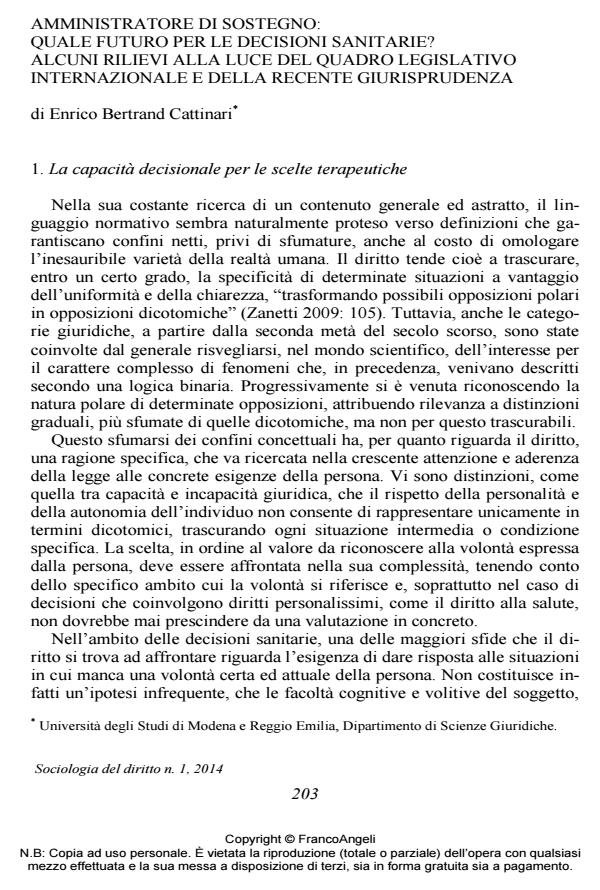The amministratore di sostegno: What future for health care decisions? Some thoughts on the basis of a recent judgment
Journal title SOCIOLOGIA DEL DIRITTO
Author/s Enrico Bertrand Cattinari
Publishing Year 2014 Issue 2014/1
Language Italian Pages 12 P. 203-214 File size 158 KB
DOI 10.3280/SD2014-001010
DOI is like a bar code for intellectual property: to have more infomation
click here
Below, you can see the article first page
If you want to buy this article in PDF format, you can do it, following the instructions to buy download credits

FrancoAngeli is member of Publishers International Linking Association, Inc (PILA), a not-for-profit association which run the CrossRef service enabling links to and from online scholarly content.
An agent appointed by the patient is certainly the most suitable person to make healthcare decisions consistent with his will, in the event that the patient is no longer competent. However the agent’s task should be not only to decide instead of the patient, but also to support his will, by assisting his choices in all situations of reduced capacity. The principle adopted by many foreign legal orders is important for this purpose, as the role of the agent receives recognition before the patient’s incapacity arises. Since Italy’s domestic legislation makes no specific provision for anticipated healthcare decisions, several Courts have ruled that an amministratore di sostegno (supportive administrator) may be appointed for future health-care decisions and receive immediate legal recognition, before the patient’s incapacity arises. Some concern is justified, however, by a more restrictive view recently adopted by the Italian Supreme Court, which restricts the application of this principle.
Keywords: Supportive administrator - Health care agent - Therapeutic self-determination
Enrico Bertrand Cattinari, Amministratore di sostegno: quale futuro per le decisioni sanitarie? Alcuni rilievi alla luce del quadro legislativo internazionale e della recente giurisprudenza in "SOCIOLOGIA DEL DIRITTO " 1/2014, pp 203-214, DOI: 10.3280/SD2014-001010